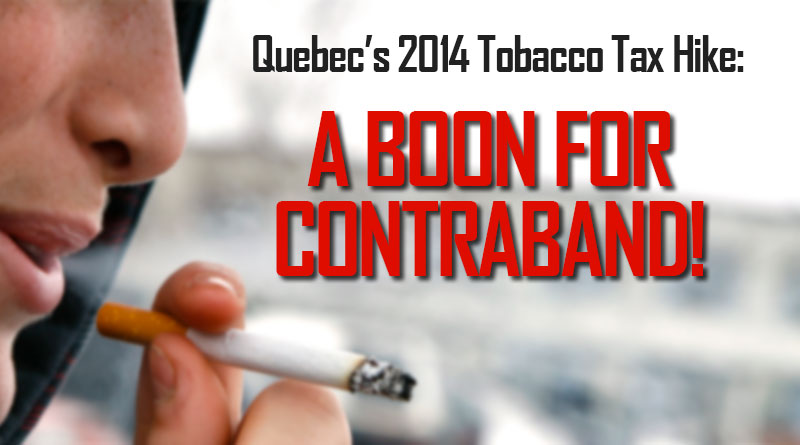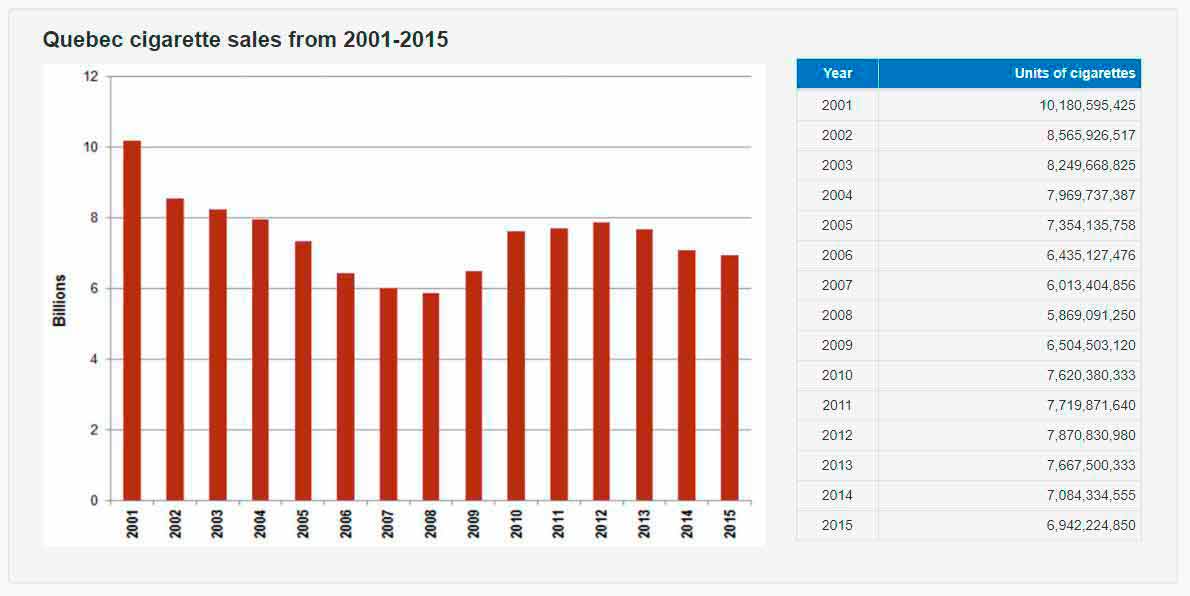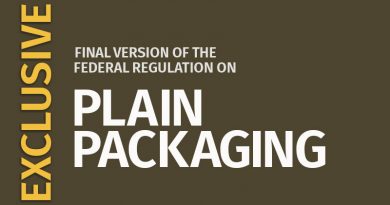All Signs Indicate That Quebec’s 2014 Tobacco Tax Hike Fueled Contraband
Just a few months after being elected in June 2014, the Liberal government of Philippe Couillard adopted a mini-budget to help improve public finances which were deemed in a sorry state after a year and a half of PQ governement and especially, of course, 9 years, 4 months and 21 days of tumultuous Liberal rule under Jean Charest.
Among the various measures announced, the new Finance Minister, Carlos Leitao, went for a tobacco tax increase of $ 0.50 per pack of cigarettes, or $ 4 a carton.
The measure, it was said, would accomplish two main objectives:
- One: encourage 50,000 smokers to quit due to rising costs;
- Two: increase tax revenues by $ 90 million in 2014-2015, $ 120 million in 2015-2016 and $ 115 million the following year (source: La Presse).
As for the risk of fueling contraband, the government rejected it, saying it was in decline and largely under control, declining from 30% to about 14% according to its estimate.
Three years later, what about these predictions?
Has the tax hike really delivered promised incomes and lowered smoking without encouraging contraband?
We highly doubt it.
The figures indicate, on the contrary, that this was a very bad deal for both government revenues AND public health.
Overstatement of projected revenues
First, the minister was far too optimistic in his predictions of rising incomes, a sign of naivety on his part.
- In 2014-15, tobacco tax revenues increased, but only by $ 59 million instead of $ 90 million, or 34% less than expected (source: Public Accounts 2014-2015);
- In 2015-2016, tobacco tax revenues increased from 2013-14 (base year), but only by $ 73 million instead of $ 120 million, or 39% less than expected (source: Public Accounts 2015 -2016).
The reason for this disapointing outcome is simple: the decline in smokers far exceeded the planned 50,000.
But is it because the latter have stopped their ugly habit or rather because they have turned to a new source of supply which is, shall we say, a lot cheaper and a bit illegal?
Major drop in legal cigarette sales
According to Statistics Canada (see here and the table below), sales of cigarettes in Quebec fell sharply in 2014 from 7.67 billion to 7.08 billion sticks, the lowest sales since 2009.
Legal sales dropped by 583 million sticks in one year. Estimating 15 cigarettes per day as the average for smokers, it means that the legal market has lost 106,514 smokers in one year, or double the minister’s predictions made over three years!
In 2015, the following year, legal sales still dropped by another 142 million sticks, or 26,000 less smokers from the legal market. However, the government’s reported revenue increase slightly from $ 1,069 million to $ 1,083 million (which is possible, the calendar and fiscal years not overlapping perfectly).
So in early 2016, we had an estimated 132,000 fewer legal smokers than before the tax increase, almost three times the minister’s prediction. This represents $ 108 million in lost tax revenues per year.
In other words, Mr. Leitao overestimated the increase in revenues and underestimated the loss of smokers: exactly the scenario of a minister caught by surprise by the resilience of contraband tobacco.
One thing is certain: with more than 200 smoke shacks open and accessible 15 hours a day, 7 days a week, it would be really naive to believe that all these smokers have magically stopped their nasty habit.
In fact, evidence that the majority of them have switched to contraband is easy to find.
Should the government had found that its tax hike did not encourage contraband at all, it would have continued on the path of tax increases to make more money with fewer smokers.
But on the contrary, the policy-makers restrained from it.
Today, Quebec has by far the lowest tobacco provincial taxes in the country, as you can see:
- Québec: $ 29.80 (including QST)
- Ontario: $ 37.87 (including 8% of its provincial tax)
- Yukon: $ 42.00
- British Columbia: $ 47.80
- Alberta and Nunavut: $ 50.00, etc.
When a government realizes that by increasing a tax, its fiscal capacity is crumbling, it tends to refrain from doing so again.
There is no better admission of impotence vis-a-vis the strength and resilience of Quebec’s contraband tobacco!







